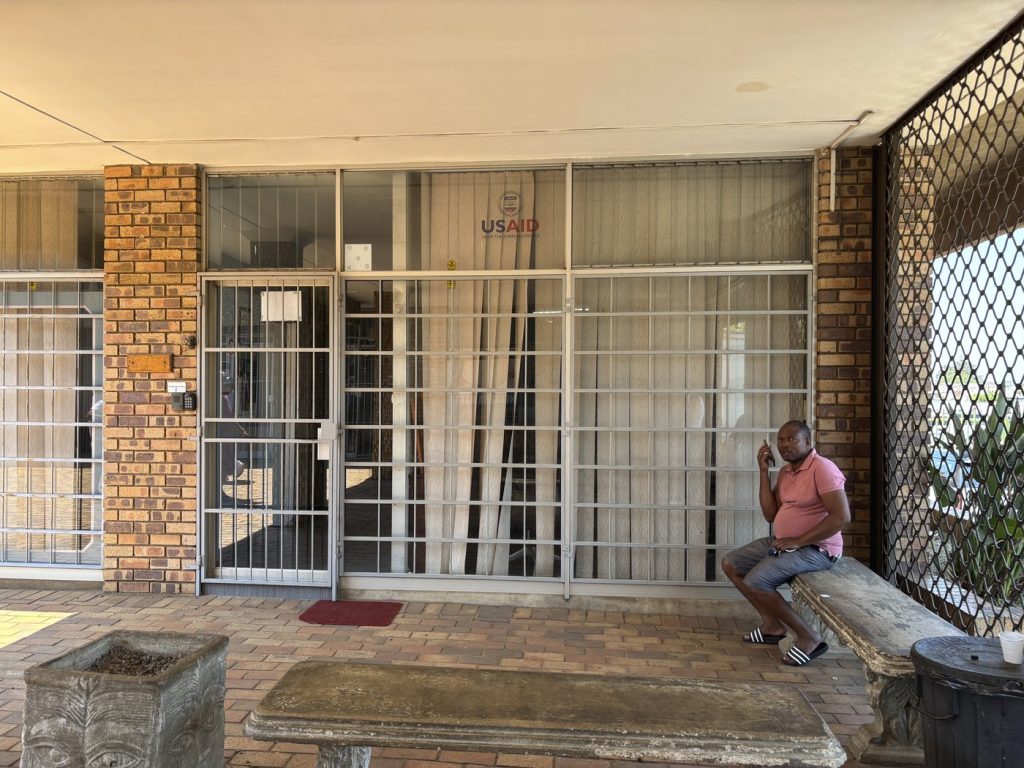JOHANNESBURG (AP) – In a shocking turn of events, an email landed in Claris Madhuku’s inbox in rural Zimbabwe just four days after President Donald Trump signed an executive order freezing nearly all U.S. foreign aid. The email instructed Madhuku to stop all activities immediately, underscoring his fears that Trump’s return to office would jeopardize efforts aimed at saving African girls from child marriages. This abrupt halt to foreign aid has heightened concerns among many in Africa, who had anticipated that Trump’s "America First" policy would deprioritize the continent.
While global outrage led to some exemptions from the freeze, its impact on sub-Saharan Africa is significant, given that the region received over $6.5 billion in humanitarian assistance from the U.S. in the past year. Madhuku’s organization, the Platform For Youth and Community Development, is one of hundreds of NGOs reliant on U.S. aid to provide crucial services. Without this funding, Madhuku stated that his group has been unable to provide allowances for nearly 100 volunteers engaged in outreach initiatives to keep girls in school and prevent early marriages.
Madhuku expressed deep frustration, stating, “We had to stop everything, no warning, no time to adjust. I appreciate that Trump might have some justification in trying to account for American taxpayers’ money…but it has caused disaster here.” The situation raises alarms about the potential risks for some of the world’s most successful foreign aid programs, most notably the President’s Emergency Plan for AIDS Relief (PEPFAR).
PEPFAR, which has enjoyed bipartisan support for over two decades, has been credited with saving more than 25 million lives, predominantly in Africa. The health minister of South Africa, Aaron Motsoaledi, voiced his bewilderment over the U.S. aid freeze. With South Africa’s annual HIV/AIDS program costing about $2.3 billion, PEPFAR funding accounts for nearly 20% of this budget. Authorities affirm that PEPFAR contributes life-saving antiretroviral treatment to approximately 5.5 million people daily.
Despite Secretary of State Marco Rubio announcing that life-saving assistance, including medical services, would be exempt from the freeze, ambiguities regarding which programs qualify remain. The United Nations AIDS program reported that many organizations dependent on PEPFAR funding have shut down because of the aid impasse, creating “lack of clarity and great uncertainty about the future.”
In South Africa, reports indicate that PEPFAR-funded facilities remained closed several days after the exemptions were announced, denying patients essential services. Johannesburg’s largest township, Soweto, witnessed patients being turned away from the HIVSA center. A notice at the Wits RHI Key Populations Clinic apologetically informed clients of the disruptions. Health experts warn that the short-term consequences of paused funding could be dire, with even minor interruptions to antiretroviral treatment posing significant health risks.
Humanitarian agencies are struggling to navigate the uncertainty surrounding the aid freeze. A humanitarian official revealed that about 1.2 million individuals in the Democratic Republic of Congo could face severe repercussions due to the loss of support, citing that nearly half of their organization’s funding comes through USAID. The halt in assistance comes at a precarious time as fighting escalates in eastern Congo, where millions are already displaced.
In Sudan, ravaged by civil war, the aid freeze endangers the health of 600,000 people who are at a higher risk of diseases like cholera, malaria, and measles. Despite the announced exemptions, organizations are reportedly being advised not to resume any USAID-funded activities until receiving explicit notice confirming the applicability of the waiver. This prevailing uncertainty shows the complex ramifications that the foreign aid freeze could have across multiple nations and humanitarian efforts.










